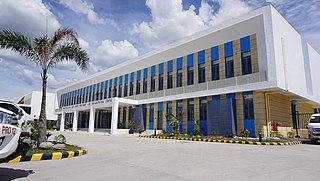 W
WApplied behavior analysis (ABA), also called behavioral engineering, is a scientific technique concerned with applying empirical approaches based upon the principles of respondent and operant conditioning to change behavior of social significance. It is the applied form of behavior analysis; the other two forms are radical behaviorism and the experimental analysis of behavior.
 W
WThe Bobo doll experiment is the collective name for a series of experiments performed by psychologist Albert Bandura to test his social learning theory. Between 1961 and 1963, he studied the behavior of children after they watched an adult model act aggressively towards a Bobo doll. The most notable variation of the experiment measured the children's behavior after seeing the adult model rewarded, punished, or experience no consequence for physically abusing the Bobo doll.
 W
WCaptivity, or being held captive, is a state wherein humans or other animals are confined to a particular space and prevented from leaving or moving freely. An example in humans is imprisonment. Prisoners of war are usually held in captivity by a government hostile to their own. Animals are held in captivity in zoos, and often as pets and as livestock.
 W
WCognitive bias modification (CBM) refers to procedures used in psychology that aim to directly change biases in cognitive processes, such as biased attention toward threat stimuli and biased interpretation of ambiguous stimuli as threatening. The procedures are designed to modify information processing via cognitive tasks that use basic learning principles and repeated practice to encourage a healthier thinking style in line with the training contingency.
 W
WDiscipline is action or inaction that is regulated to be in accordance with a particular system of governance. Discipline is commonly applied to regulating human and animal behavior to its society or environment it belongs. In the academic and professional worlds a discipline is a specific branch of knowledge, learning, or practice. Discipline can be a set of expectations that are required by any governing entity including the self, groups, classes, fields, industries, or societies.
 W
WThe graduated electronic decelerator (GED) is an aversive conditioning device that delivers a powerful electric skin shock to punish behaviors considered undesirable. The GED was created by Matthew Israel for use on students at the Judge Rotenberg Center as part of the school's behavior modification program. The school has since been condemned for torture by the United Nations special rapporteur on torture for its use of the GED and other inhumane punishments. In 2020, the device was banned in the United States by the Food and Drug Administration.
 W
WThe Judge Rotenberg Center is an institution in Canton, Massachusetts, United States, housing people with developmental disabilities, emotional disorders, and autistic-like behaviors. The center has been condemned for torture by the United Nations Special Rapporteur on Torture. The JRC is known for its use of the graduated electronic decelerator (GED), a device that administers electric shocks to residents through a remote control. The device was designed by Matthew Israel, the institute's founder. While the FDA issued a formal ban on the GED in 2020, the device continued to be used on some residents pending an administrative stay for the duration of the COVID-19 pandemic. In July 2021, the D.C. Circuit Court of Appeals ruled that the FDA could not issue a "partial stay" but must issue a blanket ban or no ban at all, thus allowing the JRC to continue subjecting 55 people to shock in the meantime.
 W
WNorthStar Center was a young adult therapeutic transition and relapse prevention program, located in Bend, Oregon, owned and operated by Aspen Education Group for young adults ages 171⁄2 to 24 for treatment of substance abuse and addiction. In March 2011, Aspen announced that it would cease program operations in August 2011 as part of a restructuring of the company.
 W
WA residential treatment center (RTC), sometimes called a rehab, is a live-in health care facility providing therapy for substance use disorders, mental illness, or other behavioral problems. Residential treatment may be considered the "last-ditch" approach to treating abnormal psychology or psychopathology.
 W
WA token economy is a system of contingency management based on the systematic reinforcement of target behavior. The reinforcers are symbols or tokens that can be exchanged for other reinforcers. A token economy is based on the principles of operant conditioning and behavioral economics and can be situated within applied behavior analysis. In applied settings token economies are used with children and adults; however, they have been successfully modeled with pigeons in lab settings.
 W
WThe reward system is a group of neural structures responsible for incentive salience, associative learning, and positively-valenced emotions, particularly ones involving pleasure as a core component. Reward is the attractive and motivational property of a stimulus that induces appetitive behavior, also known as approach behavior, and consummatory behavior. A rewarding stimulus has been described as "any stimulus, object, event, activity, or situation that has the potential to make us approach and consume it is by definition a reward". In operant conditioning, rewarding stimuli function as positive reinforcers; however, the converse statement also holds true: positive reinforcers are rewarding.
 W
WThe Self-Injurious Behavior Inhibiting System (SIBIS) is an apparatus designed to reduce self-injurious behavior (SIB) directed at the head, such as banging the head against walls and other objects or hitting oneself in the head. Invented by Dr. Robert E. Fischell, Glen H. Fountain, and Charles M. Blackburn in 1984, the device is able to detect instances of head-directed SIB, and delivers an aversive electric shock contingent on its occurrence. The United States Food and Drug Administration banned the device in 2020 as part of a larger blanket ban on devices that use electric shocks to modify behavior without the consent of the user. Other devices covered by this ban include the Graduated Electronic Decelerator.
 W
WThe Seed was a controversial drug rehabilitation program in the United States that operated between 1970 and 2001. Aimed at youths, the program was modeled after adult treatment programs, with its techniques having been compared to those of the cult Synanon. In a 1974 U.S Senate report, its techniques were also compared to the North Korean brainwashing technique used on Prisoners of War during the Korean War. At its height in the 1970s The Seed had locations in Fort Lauderdale, Fort Myers, Dade County, and St. Petersburg. The organisation widely marketed itself as "spectacularly successful", "teaching love", and received wide press coverage. There was also a location in Cleveland, Ohio. Art Barker and his entourage would travel back and forth a couple times a month.
 W
WIn sociology, a tipping point is a point in time when a group—or many group members—rapidly and dramatically changes its behavior by widely adopting a previously rare practice.
 W
WA token economy is a system of contingency management based on the systematic reinforcement of target behavior. The reinforcers are symbols or tokens that can be exchanged for other reinforcers. A token economy is based on the principles of operant conditioning and behavioral economics and can be situated within applied behavior analysis. In applied settings token economies are used with children and adults; however, they have been successfully modeled with pigeons in lab settings.
 W
WTranquility Bay was a residential treatment facility affiliated with World Wide Association of Specialty Programs and Schools (WWASPS), located in Calabash Bay, Saint Elizabeth Parish, Jamaica. The facility operated from 1997 to 2009 and received notoriety for its harsh and often abusive treatment of its students, eventually shutting down in 2009 after allegations of child abuse came to light through lawsuits and highly publicized student testimonies.